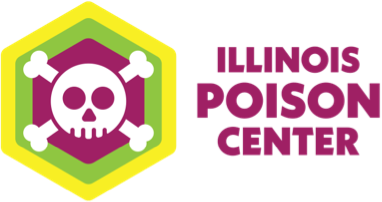Food Poisoning
If you’ve ever had food poisoning, you know how miserable it is. Food poisoning occurs after consuming food contaminated with germs, such as bacteria or viruses, or with toxic substances.
People at high risk can get really sick from a bout of food poisoning. High-risk individuals include those under age 5 and over age 65, and those with weakened immune systems from chronic diseases such as diabetes, liver or kidney disease, cancer, and HIV.
Symptoms
Food poisoning symptoms can range from mild to very serious. The symptoms experienced and severity of symptoms may vary based on the germ or toxin ingested. Common symptoms are:
Upset stomach
Stomach cramps
Nausea
Vomiting
Diarrhea
Fever
What to Do
Once someone eats contaminated food, it may take hours or days to develop symptoms depending on the germ ingested. If diarrhea or vomiting occur, drink plenty of fluids to prevent dehydration.
See a doctor or healthcare provider if severe symptoms develop, including:
Bloody diarrhea
High fever of over 102°F
Frequent vomiting that prevents you from keeping liquids down, which can lead to dehydration)
Signs of dehydration, including little or no urination, a very dry mouth and throat, or feeling dizzy when standing up
Diarrhea that lasts more than 3 days
Prevention Tips
Food poisoning is preventable. Here are four main ways to prevent food poisoning from occurring at home:
Clean: Wash your hands and surfaces frequently. Germs that cause food poisoning can survive in many places and spread around your kitchen during the cooking process.
Wash your hands for 20 seconds with soap and water before, during and after preparing food and before eating. Washing your hands well and frequently will reduce any cross-contamination between meats and vegetables or other food items.
Wash your utensils, cutting boards, and countertops with hot, soapy water.
Rinse fresh fruits and vegetables under running water.
Separate, don’t cross-contaminate. Raw meat, poultry, seafood and eggs can spread germs to ready-to-eat foods if they are not kept separate from each other.
Use separate cutting boards and plates for raw meat, poultry and seafood.
Keep foods separate in the refrigerator. These include raw meat, poultry, seafood and eggs.
Cook to the right temperature: Cook food to an internal temperature high enough to kill germs that can make you sick. Use a food thermometer to ensure foods are cooked to a safe internal temperature. Safe temperatures include:
145°F for whole cuts of beef, veal, lamb and pork, including fresh, raw ham
145°F for fish with fins, or cook until the flesh is opaque
160°F for ground meats, such as beef and pork
165°F for poultry, including ground chicken and turkey
165°F for leftovers and casseroles
Chill: Refrigerate promptly. Bacteria can multiply rapidly if left at room temperature or in the “Danger Zone” between 40°F and 140°F. Never leave perishable food out for more than 2 hours, or 1 hour if exposed to temperatures above 90°F. The more bacteria you ingest, the more severe the illness can be.
Refrigerate perishable food within 2 hours. If the food is exposed to temperatures above 90°F (like a hot car or at a picnic), refrigerate it within 1 hour.
Thaw frozen food safely in the refrigerator, cold water or microwave. Never thaw foods on the counter because bacteria multiply quickly in the parts of the food that reach room temperature.
Keep your refrigerator at 40°F or below.
IPC is here to help. Calls to our helpline, 1-800-222-1222, are free and confidential. Toxicology experts are available to answer your questions 24 hours a day, seven days a week.
